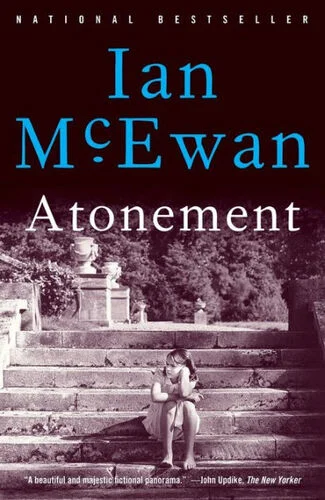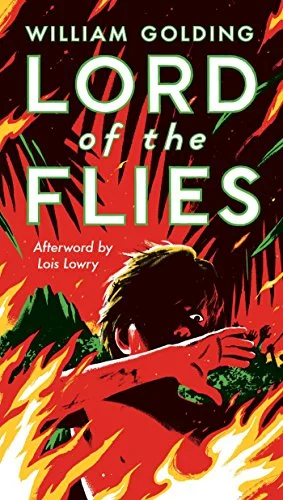Ian McEwan’s Atonement is many things—a love story, a war narrative, a psychological portrait, and, ultimately, a meditation on guilt, memory, and narrative authority. What sets the novel apart is the way it operates not just as a literary work, but as a meta-literary confession.
The narrative, shaped and manipulated by its central character, Briony Tallis, creates a deliberate tension between truth and invention. In doing so, Atonement blurs the line between fiction and confession, raising profound questions about whether storytelling can serve as a vehicle for moral redemption or merely a shield from accountability.
The novel invites us to ask: Can writing about a wrong right that wrong? Does transforming guilt into art amount to atonement—or is it a refined form of evasion?
A Fictional Framework with Real Consequences
At the heart of Atonement lies an act of misinterpretation. A young Briony falsely accuses Robbie Turner, the housekeeper’s son and her sister Cecilia’s lover, of a crime he did not commit. Her accusation—part misunderstanding, part self-deception—sets in motion a series of events that forever alters multiple lives. What appears initially to be a story of ruined love is, upon closer inspection, Briony’s lifelong struggle with remorse.
The reader learns only gradually that Briony is not just the protagonist of the novel, but also its narrator and ultimate author. This revelation reframes the entire narrative. The events we witness, especially in the novel’s final sections, are not historical truths but literary reconstructions. Briony is not just telling a story—she is shaping a confession. She is both witness and architect, sinner and scribe.
This narrative maneuver transforms the book into a metafictional reflection on the power of storytelling. The question becomes not whether Briony has written a good novel, but whether her act of writing constitutes a sincere attempt at moral clarity—or a sophisticated form of self-justification.
Confession Through Creation
In religious and legal traditions, confession is tied to truth. It is the moment when a person admits guilt, accepts responsibility, and, in doing so, opens the door to forgiveness. But Atonement offers a different, more complicated form of confession: one in which truth is interwoven with fiction, and in which the lines between memory, imagination, and remorse are deliberately blurred.
By creating an alternative version of events in which Robbie and Cecilia are reunited, Briony offers a form of wish fulfillment—not to them, but to herself. She grants her characters the closure she denied them in real life. This act is emotionally moving and artistically elegant, but it is also evasive. It suggests a desire to rewrite not just narrative outcomes, but moral history.
What emerges is a tension between the author’s intentions and the limitations of narrative. Can Briony atone for her crime through fiction? Is the beautiful ending she writes an act of healing or an escape from guilt? These are not questions the novel answers definitively—but they are central to its emotional power.
The Unreliable Narrator and Ethical Ambiguity
One of the ways Atonement blurs the lines between fiction and confession is through the use of an unreliable narrator. For much of the novel, readers believe they are receiving a third-person, omniscient perspective. Only late in the book does it become clear that Briony is the controlling voice behind the curtain.
This narrative shift forces a reevaluation of everything we have read. How much of what Briony presents is true? How much has been shaped to elicit sympathy or to cast herself in a more favorable light? The confession is not clean; it is curated. And while that doesn’t make it false, it certainly makes it ethically ambiguous.
This ambiguity mirrors the real complexity of guilt and memory. People do not remember events neutrally, nor do they always confess with perfect clarity. In suggesting that fiction itself can become a kind of confession—one shaped by the same distortions and emotional needs as memory—McEwan draws attention to the moral fragility of narrative.
Fiction as Moral Reckoning or Concealment?
McEwan’s novel does not suggest that fiction is inherently dishonest. In fact, Atonement celebrates the transformative power of literature—the way it can give shape to chaos and lend voice to suffering. But it also questions the role of fiction as a substitute for ethical action.
Briony’s rewriting of events is deeply personal. She knows she cannot undo the damage she caused. She cannot bring Robbie back from war or Cecilia from death. What she can do is control their story. In giving them a fictional happiness, she performs an act of literary restitution.
But is this enough? For whom is the atonement intended? Robbie and Cecilia, long gone, cannot benefit from Briony’s imagined ending. The primary beneficiary is Briony herself. She creates a space where her conscience can find peace—not necessarily because she has made amends, but because she has reshaped the narrative to live with herself.
This raises the uncomfortable possibility that fiction, far from being redemptive, can function as a coping mechanism—a way to bury guilt under beautiful prose.
The Reader as Confessor
Another layer to the novel’s confessional structure is the role of the reader. As we uncover the truth behind Briony’s narration, we are drawn into her ethical dilemma. We are not just witnesses to her confession; we are its recipients. She invites our judgment, our sympathy, our forgiveness—or our refusal to forgive.
This dynamic turns the novel into a moral dialogue. By making the confession fictional, McEwan highlights the instability of truth, but he also implicates the reader. We are asked to assess not just the content of Briony’s story, but the ethics of telling it. In this way, Atonement becomes a novel about the act of reading as much as the act of writing.
The Complexity of Narrative Redemption
In Atonement, Ian McEwan challenges the traditional boundaries between fiction and confession. Through Briony’s dual role as perpetrator and narrator, he crafts a novel that is as much about storytelling as it is about guilt and forgiveness. Briony’s attempt to atone is not clean, nor is it complete. It is filtered through memory, shaped by imagination, and inevitably colored by self-interest.
Yet this does not make it meaningless. On the contrary, it makes it deeply human. The novel doesn’t offer absolution—it offers complexity. And in that complexity lies its power.
By blurring fiction and confession, Atonement invites us to consider how stories shape not just how we see the world, but how we live with ourselves. In the end, it reminds us that while fiction may not redeem us, it can still bear witness to the need for redemption.


